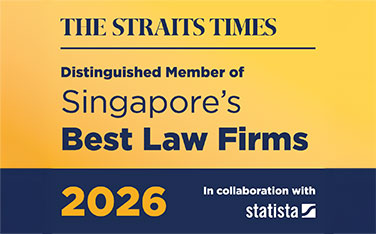Family Violence and Personal Protection Orders (PPO) in Singapore
Family violence is a serious and sensitive issue. In Singapore, the law provides a crucial legal tool to protect individuals from harm: the Personal Protection Order (PPO). If you or a loved one are facing family violence, understanding what a PPO is and how to obtain one can be the first step towards safety.
This article provides a clear guide to the legal framework surrounding PPOs in Singapore.
Legal Definitions: Family Violence and “Family Members”
Under Singapore’s Women’s Charter, “family violence” is legally defined and goes beyond just physical harm. It includes a range of acts committed against a family member:
- Wilfully or knowingly placing a family member in fear of hurt.
- Causing hurt to a family member by an act known to cause such a result.
- Wrongfully confining or restraining a family member.
- Causing continual harassment with the intent to cause anguish.
A PPO can be obtained against a “family member,” which includes a spouse or former spouse, a child, parent, sibling, or other relative.
The PPO: What It Is and How It Protects You
A Personal Protection Order (PPO) is a court order issued by the Family Justice Courts to protect an individual from family violence. The order legally restrains an abuser from committing further violence against you and other named family members.
The court may also issue other types of orders to provide additional protection, including:
- Expedited Order (EO): A temporary order for urgent protection while the court processes the full PPO application.
- Domestic Exclusion Order (DEO): This prevents the abuser from entering or remaining in the family home.
- Counselling Order: This requires one or both parties to attend mandatory counselling at a family support agency.
The Application Process
The process of obtaining a PPO begins by filing an application at the Family Justice Courts. While it may seem daunting, it is designed to be a straightforward legal process.
- Filing: You must file a sworn statement (an affidavit) with the court, detailing the specific acts of family violence that occurred. Evidence such as police reports or medical records can be included to support your claim.
- Summons: The court will issue a summons for the respondent (the person against whom the order is sought) to appear in court.
- Court Mentions: You and the respondent will have to appear in court on the first mention date. The court may refer the matter to mediation to see if a resolution can be reached.
- Hearing: If a resolution cannot be reached, the matter will proceed to a court hearing. A judge will consider evidence from both sides before deciding whether to issue a PPO.
If the respondent fails to show up on a court date, the court may issue a warrant of arrest against them.
Enforcement and Legal Support
A PPO is a legally binding order. If the abuser disobeys the order, the victim can immediately contact the police. A breach of a PPO is a criminal offence punishable by a fine or a prison sentence.
A PPO is a critical step towards finding safety and peace of mind. While the process can be challenging, a lawyer can provide clear advice, help you prepare your case, and guide you through the court proceedings.


